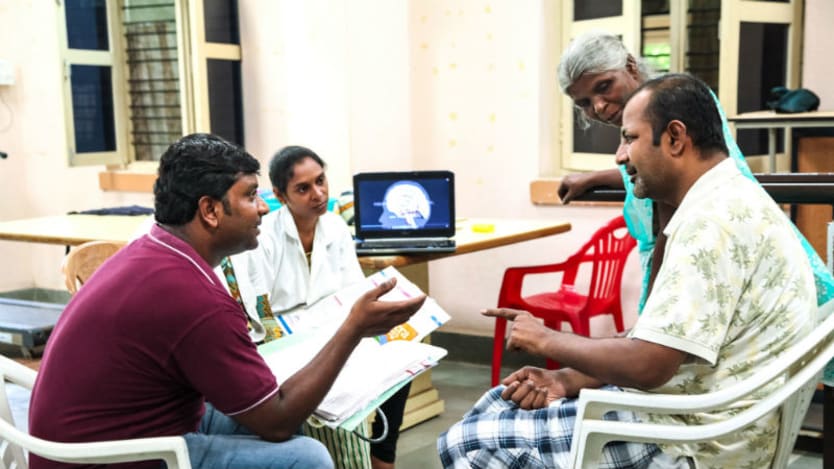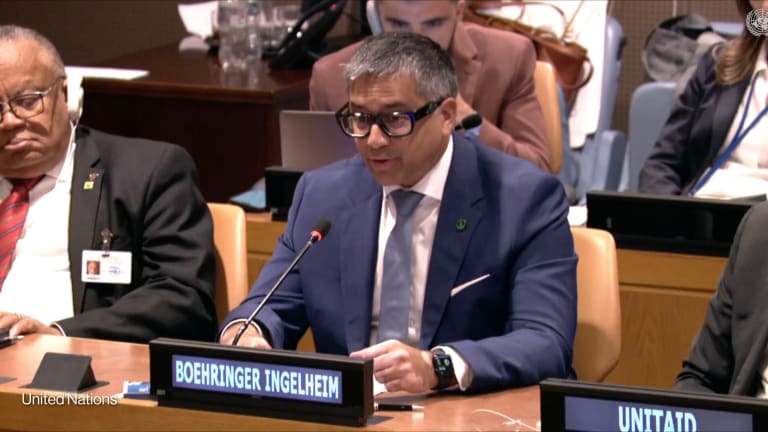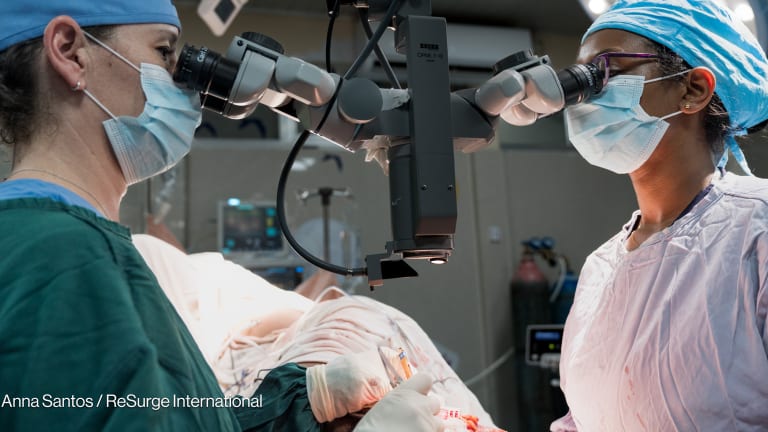
Many of us know someone who has been affected by a noncommunicable disease. We understand firsthand the challenges individuals and families face after receiving a diagnosis, especially if local health care cannot address their treatment or other support needs. The upcoming high-level meeting on NCDs provides yet another opportunity to hear and respond to what people living with NCDs face on a daily basis, how they navigate inadequate systems, and what policies must be in place to improve their chances at a better quality of life or greater well-being overall.
Take Maven, for example.
When he was born in 2011, he was diagnosed with a congenital heart defect. This involved a number of conditions, some of which doctors expected would resolve on their own. But one of those — a pulmonary stenosis — would require surgery when he was older, at an estimated cost of $20,000. That is a significant price tag just about anywhere in the world but a particularly high one for a young, working-class family living in Cebu City, Philippines.
When Maven was 4 months old, he started developing symptoms caused by a lack of oxygen that indicated he would need surgery sooner than expected — age 2 at the latest. That timeline was soon revised to be “as soon as possible,” once doctors realized he had developed a new defect just two months later. His family was faced with a critical decision and substantial challenge.
This week, the global health community will convene yet again for another international meeting hosted by the United Nations on chronic diseases such as cancer, diabetes, heart diseases, and mental health. Policymakers from around the world first came together for such a high-level meeting back in September of 2011. Then, people throughout the global health and development community were starting to recognize the global burden of NCDs and their risk factors. The reality is these conditions have been slow to receive due attention and resources in low- and middle-income countries where there is a clear transition from infectious to chronic disease. Several years before and since that inaugural meeting, patients, caregivers, and advocates have called on world leaders to heed their call to action. This week, this group will once again make their voices heard.
Over 75 percent of the cost of surgery was required just for Maven to be admitted and start the process. On top of that, Maven and his family needed to fly from their home city to Manila, where qualified surgeons could address his case at such a young age. Unfortunately, insurance would only cover about 10 percent, leaving a substantial balance as out-of-pocket expenses.
Out of sheer necessity, Maven’s Heart Fund was set up as a Facebook page, to solicit contributions from friends that would help raise the required funds for treatment and travel. Thankfully, in three months, the fund reached its goal and Maven was able to receive his essential surgery. Today, Maven is 7 years old and thriving.
Responding to the call
Maven was fortunate enough to receive the care he needed, but not everyone can overcome the financial barriers to care. People also often lack access to experts that even understand CHD or other NCDs well enough to diagnose and treat them. Many patients and families around the world respond by establishing support networks that help others navigate their health care journey, in the absence of government or community resources. In Maven’s case, his family and fellow CHD advocates established an organization called Let it Echo, Inc. to offer hope and guidance to those faced with similar conditions. While these efforts are noble and effective, it is important that survivors and advocates go beyond supporting one another to collectively calling upon policymakers to do more to guarantee children and their families receive timely and quality care.
We encourage political leaders in attendance to listen closely — with both heads and hearts — to what patients and families living with NCDs face worldwide, and what action can make a difference.
—We support the NCD Alliance’s Advocacy Agenda for People Living with NCDs and its recommendations for better services or resources for diagnosis, treatment, care, and support. In particular, we call for the following to be addressed by policymakers at the upcoming United Nations High-level Meeting on NCDs this week.
1. Broad, inclusive treatment and care
As we have heard time and again, where you live should not determine whether you live. Nonetheless, too many families who live in areas or countries without adequate health care facilities are left without options to address the needs of their children living with CHD. Even people living in proximity to these facilities might be turned away due to a lack of specialists for their child’s specific manifestation of the disease or lack of funding to pay for such specialized care. Policymakers must establish health systems that facilitate equitable access for their citizens.
2. Investment in research and training
Hands down, we need more health care providers in LMICs who understand CHD and other NCDs that present in children all over the world. Despite CHD being a common birth defect, few surgeons or specialists and centers are available in these settings. Even allied health professionals such as nurses and social workers require a better understanding of how to support families facing a CHD diagnosis.
Ripple Effect: The expansive impact of NCDs
While combating NCDs is a global task, regional contexts cause unique challenges. In this visual series, we explore a few of these challenges through the stories of health care workers and individuals living with NCDs in three different countries.
Beyond CHD specifically, governments should look toward what education programs and employment incentives are needed to develop a workforce and pipeline that can recognize symptoms and provide services for a range of basic NCD conditions throughout the life course.
To continue to ignore this need across the spectrum of chronic illnesses and risk factors is irresponsible and unjust.
3. Affordable treatment options and services
Access to quality care should not be determined by the generosity of family, friends, or even strangers. Yes, philanthropic efforts are useful to those in need, but policymakers also should ensure that the costs of health care visits, surgery, medicines, and technologies, or other patient needs are not so out of reach. Government regulations and public resources should be put in place that protect families from having to choose between basic needs and child survival.
We are grateful for the opportunity to add ours among the patient advocate voices joining this month’s U.N. dialogue. We encourage political leaders in attendance to listen closely — with both heads and hearts — to what patients and families living with NCDs face worldwide, and what action can make a difference.
For more coverage of NCDs, visit the Taking the Pulse series here.










